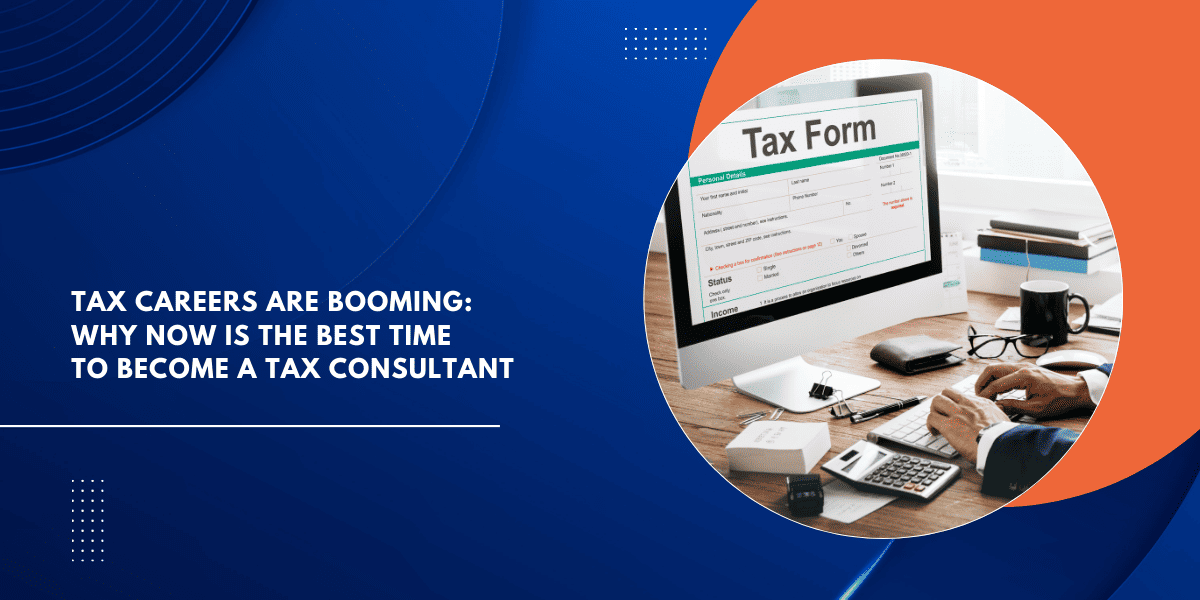Introduction: Why Cloud Architects Are the Backbone of Our Digital World?
Have you ever wondered how much we rely on cloud technology every single day—often without even realizing it? From storing our emails and streaming Netflix shows to running global operations for companies, cloud computing is the silent force powering it all.
And here’s something fascinating: Over 90% of companies worldwide now rely on cloud-based infrastructure (Flexera, 2024). That made me think—who’s behind designing and maintaining all of this? The answer: Cloud architects.
That’s why I always tell aspiring tech professionals—as someone who’s helped students navigate the tech job market for years—cloud architecture is one of the most rewarding, future-proof careers out there. With a solid cloud architect course, you can unlock exciting roles, impressive salary packages, and the work-life balance everyone dreams of.
Here’s a common misconception: many people assume cloud architecture is just about managing servers. But in reality, it’s about designing scalable systems, ensuring top-tier security, and making sure businesses run efficiently in a cloud-first world. Whether you’re in IT or just exploring career options, learning cloud architecture gives you access to some of the most in-demand job roles today.
Let’s look at a real example. Rahul Verma, an IT administrator, took a leap into cloud architecture by enrolling in a cloud architect course. Within a year, he was certified in Azure solutions, with deep knowledge in cloud security and infrastructure. Today, he works at a multinational tech firm, managing cloud environments that support thousands of users.
Then there’s Priya Sharma. She was working as a software developer when she discovered the explosive potential of cloud computing. After completing her certification, she landed a job as a cloud solutions architect—designing robust, enterprise-grade cloud infrastructures.
What these stories show is clear—you don’t need to come from a cloud or even a tech-heavy background to succeed.
I recently mentored a finance professional who wanted to pivot into tech. With no IT experience, he began with an entry-level cloud program. A year later, he led a cloud migration project that saved his company substantial operational costs—and earned him a promotion.
And these aren’t isolated cases. I’ve personally worked with countless students and mid-career professionals who’ve made the leap into cloud architecture—and thrived. The one thing they all had in common? A strong commitment to learning and growth.
So, if you’re looking for a career that’s exciting, high-paying, and relevant for the long haul, cloud architecture checks every box. With businesses moving everything to the cloud, the demand for cloud architects is only going to grow.
From what I’ve seen firsthand, now is the best time to start.
What Does a Cloud Architect Do?

A cloud architect is responsible for designing, managing, and implementing cloud-based solutions that help businesses operate efficiently.
Given the rapid growth of cloud adoption, this field offers promising career opportunities. According to Gartner, global public cloud spending is expected to reach $675 billion in 2024, demonstrating the massive demand for cloud professionals.
Their role includes:
- Developing cloud strategies and ensuring smooth cloud migration.
- Designing secure and scalable cloud environments.
- Optimizing cloud costs and managing resources efficiently.
- Collaborating with development and IT teams to build cloud-native applications.
As businesses shift to the cloud, the role of a cloud architect has become more critical than ever. Companies rely on these professionals to create efficient, secure, and scalable cloud infrastructures that drive innovation and growth.
For those looking to enter the field, mastering a cloud architect course and staying updated with industry trends can open up exciting career opportunities. I observed that such a course can be perfect for both technical and non-technical students, provided they have the determination and ambition to advance in their careers.
Do I Need to Study a Relevant Cloud Computing Course?
Yes. While you don’t need to be an expert in coding to become a cloud computing professional, completing a structured cloud computing course can significantly boost your career prospects and help you climb the corporate ladder.
I’ve seen many aspiring cloud professionals start with certification courses to build a strong foundation. From there, they move on to diploma programs or advanced certifications for a deeper understanding of cloud computing. These courses not only enhance your technical knowledge but also increase your chances of securing a cloud architect role.
A well-structured course equips you with the skills needed to design, implement, and manage cloud solutions effectively—a crucial requirement in today’s competitive job market.
Benefits of Studying Cloud Computing
High Demand for Cloud Architects: With businesses migrating to the cloud, certified professionals are in high demand. Top companies, including Amazon, Microsoft, and Google, actively hire cloud architects.
Lucrative Salary Packages: A certified Azure solutions architect earns an average salary of $130,000 per year, making it one of the highest-paying IT roles.
Diverse Career Opportunities: Completing a course on cloud architecture opens doors to roles like Cloud Engineer, DevOps Architect, and Solutions Architect.
Hands-on Learning Experience: Cloud certification programs provide real-world scenarios, allowing you to gain practical experience in cloud deployment and security.
Flexibility in Learning: Many cloud architect courses are available online, making it easy for working professionals and students to upskill at their own pace.

If you’re looking to specialize in Microsoft’s cloud platform, obtaining the certified Azure solutions architect certification is a great choice. This credential validates your expertise in designing and implementing Microsoft Azure solutions, making you a valuable asset to employers.
To become a certified Azure solutions architect, you need to:
- Gain hands-on experience with Azure services like computing, networking, and security.
- Enroll in a course that covers Azure fundamentals.
- Pass the Microsoft Certified: Azure Solutions Architect Expert exam.
We live in a time where businesses are moving rapidly toward cloud-based solutions. From startups to multinational corporations, cloud computing is now the backbone of modern technology infrastructure. But who ensures these systems run seamlessly? Cloud architects. And this is where a cloud architect course becomes essential.
The Growing Demand for Cloud Architects
Companies are rapidly shifting from traditional IT setups to cloud-based infrastructures for better scalability, security, and cost-efficiency. This transformation has fueled a surge in demand for skilled cloud architects who can design, manage, and optimize cloud environments.
Grand View Research (2023) projects that the global cloud computing market will grow at a CAGR of 17.5% between 2023 and 2030. This rapid expansion is driven by cloud technology innovations, increased remote work adoption, and businesses prioritizing digital transformation.
Certain industries are at the forefront of cloud adoption. In India, the finance and healthcare sectors are leading the transition, leveraging cloud technology to enhance security, streamline operations, and improve service delivery. Additionally, between 2019 and 2024, cloud-related job postings in India increased by 38% (NASSCOM), underscoring the growing need for cloud professionals.
A cloud architect course equips professionals with expertise in designing cloud solutions, implementing security measures, and managing cloud storage efficiently. Whether you’re an IT professional looking to upskill or a fresh graduate exploring career opportunities, structured cloud architect training provides the knowledge and certifications needed to thrive in this digital-first world.
The Role of a Cloud Architect
Cloud architects play a critical role in modern businesses by designing cloud environments that enhance efficiency, security, and scalability. They work closely with IT teams to:
✅ Develop and manage cloud strategies
✅ Implement secure, scalable solutions
✅ Monitor cloud performance and budgets
✅ Ensure data security and compliance
Beyond these responsibilities, they also evaluate emerging technologies, streamline cloud migrations, and integrate cloud solutions with existing IT infrastructure. Their expertise allows businesses to scale operations, enhance agility, and drive innovation.
💡 Take Rajesh Malhotra, a cloud architect at a multinational firm. His day often starts with optimizing cloud budgets, followed by collaborating with developers to enhance cloud applications. By afternoon, he’s conducting security audits and ensuring compliance with industry standards—all while keeping the company’s cloud environment running smoothly.
With cloud adoption accelerating, skilled cloud architects are now essential for organizations looking to stay competitive in the digital-first world.
The Rise of Multi-Cloud and Hybrid Cloud Strategies
These days, businesses no longer rely on a single cloud provider. Many enterprises adopt multi-cloud or hybrid cloud strategies to prevent vendor lock-in and increase flexibility.
From industry hiring trends I’ve tracked, professionals skilled across AWS, Azure, and GCP are commanding 25–30% higher salaries, making cloud architecture a lucrative career choice.
Multi-cloud environments allow organizations to select the best services from different providers, ensuring optimal performance and cost efficiency. Meanwhile, hybrid cloud solutions combine public and private cloud infrastructures, offering greater control over sensitive data.
🚀 For instance, Flipkart leverages a hybrid cloud model to efficiently handle peak-season loads during festive sales, ensuring seamless performance even under extreme traffic spikes.
As cloud technology evolves, organizations seek experts who can optimize cloud workloads, integrate AI-driven automation, and implement best practices for disaster recovery. This makes cloud architecture a dynamic and rewarding career path, with opportunities spanning industries such as finance, healthcare, and e-commerce.
Emerging Skills Required for Cloud Architects

To thrive as a cloud architect, professionals need expertise in cloud security, automation, Infrastructure as Code (IaC), and cost optimization. Leading cloud architecture courses emphasize hands-on labs, live projects, and certification preparation, ensuring learners gain real-world experience alongside theoretical knowledge.
💡 “Completing my cloud architect course helped me land a DevOps role in just four months.” – Ankit J., Bangalore
With businesses rapidly adopting cloud-first strategies, professionals with certifications like Certified Azure Solutions Architect or equivalent credentials will have a competitive edge in the job market. As the cloud computing sector continues to grow, organizations are actively investing in skilled experts who can design, manage, and optimize cloud infrastructures efficiently.
Emerging Skills Required
As cloud adoption accelerates, businesses seek professionals who can design secure, scalable, and cost-efficient cloud environments. To stay ahead in this evolving field, aspiring cloud architects must develop expertise in key areas:
Cloud Security & Compliance
With cyber threats rising by 38% in 2024 (IBM Security Report), cloud security is a top priority for businesses. Cloud architects must understand identity management, encryption protocols, and compliance frameworks like GDPR, HIPAA, and ISO 27001 to protect sensitive data.
Multi-Cloud & Hybrid Cloud Management
Businesses increasingly adopt multi-cloud and hybrid cloud strategies to avoid vendor lock-in. Cloud architects must be proficient in managing AWS, Azure, and Google Cloud simultaneously, optimizing performance while controlling costs.
Cost Optimization & Performance Tuning
Cloud costs can spiral out of control if not managed effectively. Architects need skills in auto-scaling, rightsizing instances, and leveraging serverless computing to balance performance and expenditure.
AI & Cloud Integration
AI-driven cloud services are transforming industries, with 70% of enterprises expected to integrate AI into cloud operations by 2025 (Gartner, 2024). Cloud architects who understand AI model deployment, data pipelines, and machine learning operations (MLOps) will be in high demand.
Technical Skills
Cloud Platforms Expertise – Proficiency in AWS, Microsoft Azure, and Google Cloud Platform (GCP) is crucial. Cloud architects must understand compute, storage, networking, and security components across multiple providers.
Infrastructure as Code (IaC) – Tools like Terraform, AWS CloudFormation, and Ansible help automate cloud resource provisioning. Mastering these ensures scalability and consistency in cloud deployments.
Containerization & Orchestration – Cloud-native applications rely on Docker and Kubernetes for efficient deployment and scaling. Knowledge of EKS (AWS), AKS (Azure), or GKE (GCP) is valuable.
Programming & Scripting – Python, Bash, and PowerShell are commonly used for automation, cloud API interactions, and DevOps tasks. Mastering scripting helps streamline cloud operations.
Cloud Cost Optimization – Companies prioritize reducing cloud expenses. Skills in rightsizing instances, using reserved instances, and implementing auto-scaling strategies help optimize costs effectively.
DevOps Practices – Continuous integration and deployment pipelines using Jenkins, GitHub Actions, and AWS CodePipeline are key to maintaining efficient cloud workflows.
Soft Skills
Problem-Solving – Cloud architects must troubleshoot performance issues, design scalable architectures, and ensure seamless cloud migration.
Communication – Explaining cloud strategies to technical teams and non-technical stakeholders is vital. Cloud architects should translate complex cloud concepts into business impact insights.
Collaboration – Working with developers, security teams, and business leaders ensures that cloud solutions align with company goals.
Critical Thinking – Choosing the right cloud provider, architecture model, and security practices requires analyzing trade-offs and long-term impact.
Adaptability – Cloud technologies evolve rapidly. Staying updated on new services, certifications, and best practices is essential for long-term success.
Want expert guidance on launching your career as a Cloud Architect? Connect with NextMovez today and take your first step toward a thriving future in the digital era!
Future Outlook and Industry Adaptation
The demand for cloud architects is expected to surge as businesses increasingly adopt cloud-first strategies and invest in AI-driven automation, edge computing, and serverless architectures. According to IDC (2024), global spending on cloud services is projected to exceed $1.3 trillion by 2025, reflecting the critical role of cloud professionals in the evolving tech landscape.
Organizations are diversifying cloud providers to enhance reliability and avoid vendor lock-in. Companies like Flipkart and TCS are leveraging hybrid cloud models to balance cost and performance. Similarly, cloud providers are integrating AI-powered automation to optimize workloads and enhance security. Businesses need cloud architects who can design AI-driven cloud environments for real-time analytics and automation.
Many firms are now focusing on reducing carbon footprints, companies are adopting energy-efficient cloud solutions. Cloud architects must implement sustainable computing practices and optimize resource consumption.
In addition, with increasing cyber threats, cloud security remains a top priority. Professionals skilled in zero-trust architecture, compliance frameworks (GDPR, HIPAA), and cloud-native security tools will be in high demand.

Latest trend in cloud computing in India and the world
Cloud computing is undergoing a rapid transformation, both in India and across the globe, as businesses increasingly adopt advanced technologies to enhance efficiency, security, and scalability. One of the most significant trends is the shift towards multi-cloud and hybrid cloud strategies, allowing organizations to optimize performance while avoiding dependency on a single provider. Companies in India, such as Flipkart and TCS, are leveraging these models to ensure flexibility and resilience in their operations.
The integration of artificial intelligence and machine learning into cloud platforms is another major development, enabling businesses to automate data management, enhance security protocols, and streamline operations. Additionally, the expansion of edge computing is reducing latency and improving real-time data processing, a crucial factor for industries relying on IoT solutions.
With rising cybersecurity threats, cloud security and compliance have become top priorities, leading to increased investment in safeguarding data. According to Gartner, global cloud security spending is expected to reach $68 billion by 2025.
Sustainability is also emerging as a key focus, with cloud giants like AWS, Microsoft Azure, and Google Cloud investing in carbon-neutral initiatives and energy-efficient infrastructure. As these trends continue to shape the industry, cloud computing remains at the forefront of digital transformation, driving innovation and business growth worldwide.

Choosing the Right Cloud Architect Course
The demand for cloud computing professionals has surged in recent years, making cloud architecture one of the most sought-after career paths in the tech industry.
However, choosing the right course is crucial to ensuring career growth. Whether you’re interested in AWS, Google Cloud, or becoming a certified Azure solutions architect, selecting a course that aligns with industry trends and employer expectations is key.
A 3-step starter path for beginners
Step 1: Build a Strong Foundation with Certifications
Start by gaining fundamental knowledge through beginner-friendly certifications like AWS Cloud Practitioner or Microsoft Azure Fundamentals. These courses introduce key cloud concepts, services, and security best practices, setting the stage for more advanced learning.
Step 2: Gain Hands-On Experience with Free-Tier Accounts
Practice is crucial in cloud computing. Utilize free-tier accounts on platforms like AWS, Azure, and Google Cloud to experiment with virtual machines, databases, and networking tools. This hands-on approach reinforces theoretical knowledge and helps develop practical skills.
Step 3: Join Peer Communities and Prepare for Certification
Engage with cloud professionals by joining online forums, LinkedIn groups, and tech communities. Participate in discussions, attend webinars, and collaborate on projects. Networking with peers can provide valuable study resources, insights into industry trends, and motivation to pursue advanced certifications.
Developing Proficiency in Industry Tools and Technologies
Cloud architects must be proficient in various cloud services, automation tools, and infrastructure-as-code (IaC) technologies. Learning tools like Terraform, Kubernetes, Docker, and cloud monitoring solutions enhance an architect’s ability to design and manage efficient cloud environments.
Specializing in a certified Azure solutions architect program can provide expertise in Microsoft’s cloud offerings, further strengthening career prospects.
Understanding Cloud Security and Compliance
Security is a major concern in cloud computing, and organizations seek cloud architects who understand risk management, compliance regulations, and best security practices. A comprehensive cloud architect course should cover essential security measures to ensure robust cloud protection.
✅ Identity Management – Implementing Identity and Access Management (IAM) to control user permissions and prevent unauthorized access.
✅ Data Encryption – Securing sensitive data through encryption techniques to protect it from breaches and cyber threats.
✅ Regulatory Compliance – Ensuring adherence to industry standards like GDPR, HIPAA, and ISO 27001 to maintain data privacy and security.
By mastering these key aspects, cloud architects can build secure, compliant, and resilient cloud infrastructures that align with global security standards.
Cloud computing is constantly evolving, with new services, certifications, and best practices emerging regularly. Engaging with cloud communities, attending webinars, and obtaining advanced certifications, keeps professionals ahead of the curve.
Conclusion: Why is a Cloud Architect Course Essential?
So, why should you consider a cloud architect course? Cloud architects play a critical role in designing and implementing scalable, secure, and cost-effective cloud solutions. With businesses rapidly migrating to the cloud, the demand for skilled professionals continues to rise. Enrolling in such a course provides a structured learning path, hands-on experience, and industry-recognized certifications that enhance employability. Need help choosing the right cloud career path? Explore our guided mentoring sessions at NextMovez.
Resources and Reference Links
Microsoft Certified: Azure Solutions Architect Expert: Certification Details
Google Professional Cloud Architect: Certification Overview
Coursera’s Guide on Becoming a Cloud Architect: Career Guide






















